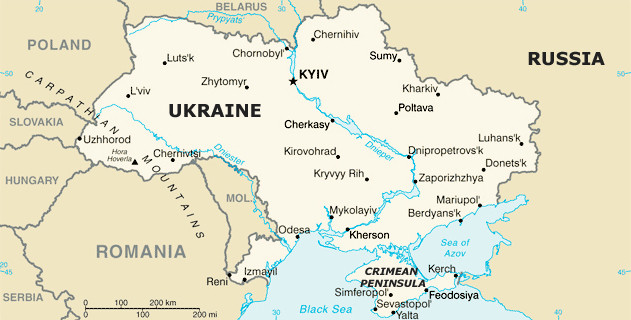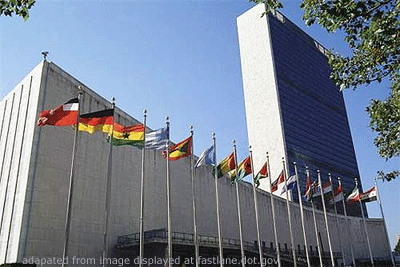UNOCHA: Five things you need to know about the crisis in Ukraine

(From the United Nations Office for the Coordination of Humanitarian Affairs – unocha.org – ©2015 Reprinted with the permission of the United Nations – also appeared at unocha.org/top-stories/all-stories/five-things-you-need-know-about-crisis-ukraine – June 29, 2015 )
 “We can make a difference … but we do need to get the funds,” said UN Resident Coordinator Neal Walker on Friday at a New York Headquarters Briefing on the Humanitarian Situation in the country, co-chaired by Ambassador Yuriy Sergeyev, Permanent Representative of Ukraine to the United Nations.
“We can make a difference … but we do need to get the funds,” said UN Resident Coordinator Neal Walker on Friday at a New York Headquarters Briefing on the Humanitarian Situation in the country, co-chaired by Ambassador Yuriy Sergeyev, Permanent Representative of Ukraine to the United Nations.
Access remains a major challenge in certain non-government controlled areas, which compromised and impedes the delivery of humanitarian aid.
With no political solution in sight, and the number of people fleeing their homes continuing to rise, the situation is dire.
Here are the 5 things you need to know about the crisis in eastern Ukraine right now:
1. Human cost:
Violence in the Ukraine has killed 6,500 people in the past year, wounded 16,000 and left 5 million people in need of humanitarian aid.
2. Water:
Access to water remains a critical issue for many civilians, with up to 500,000 people with poor or no access to water. This increases the risk of water-borne disease outbreaks, especially as temperatures are rising.
3. Displaced people:
With more than 1.3 million registered IDPs, Ukraine has now the ninth largest number of internally displaced in the world, according to the Internal Displacement Monitoring Centre.
4. Peace and reconciliation are the only solutions to this crisis:
Aid agencies in Ukraine are committed to helping all those in need, but there must be a peaceful political solution to this crisis before it becomes even worse.
5. Health:
Life in the embattled provinces of eastern Ukraine is also precarious from a healthcare standpoint as services are increasingly curtailed due to lack of medicine and medical equipment. Yet the UN and its partners have still been able to provide basic health services, including health kits for 2.6 million people and vaccinations for 30,000 people.
